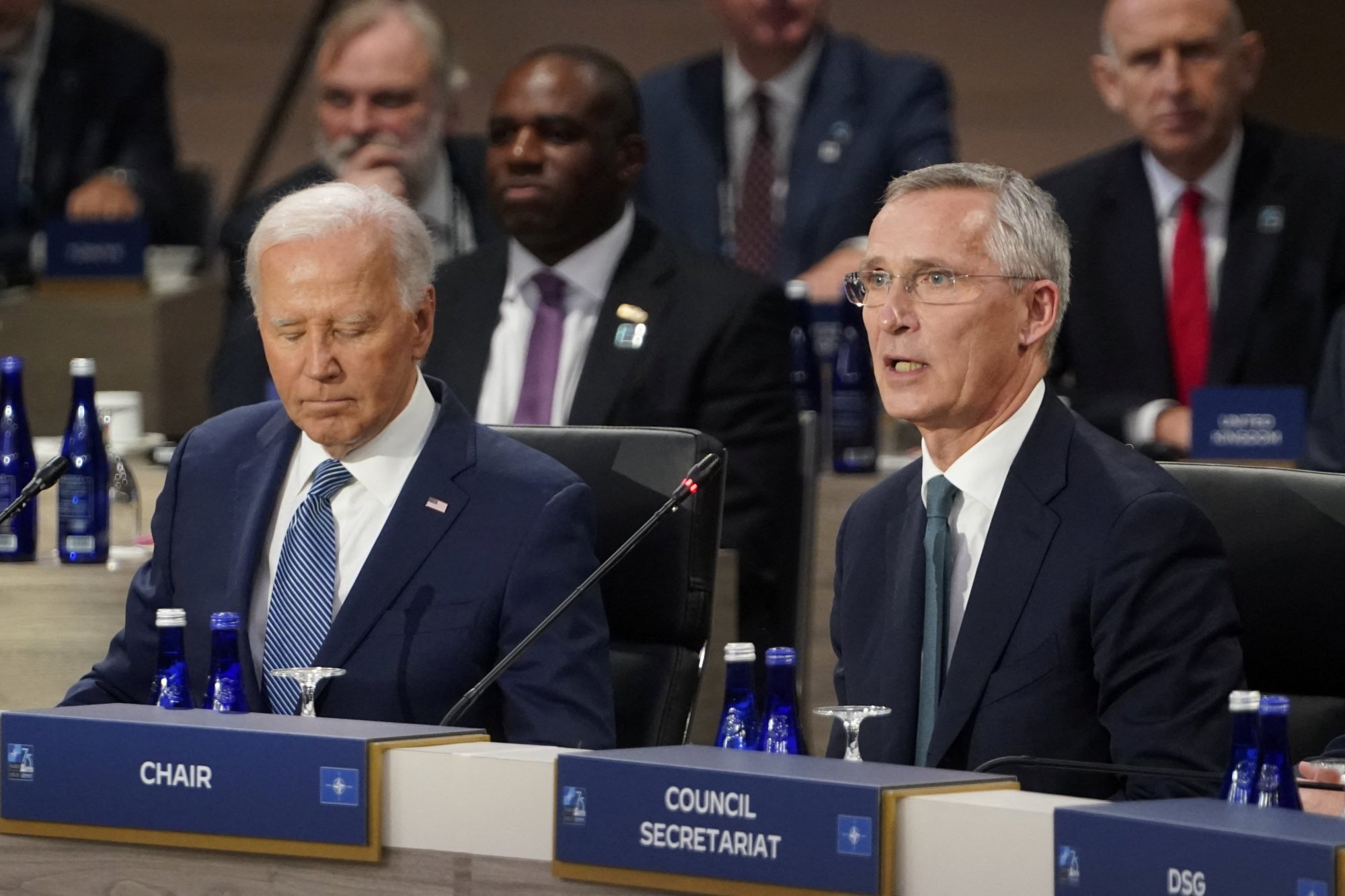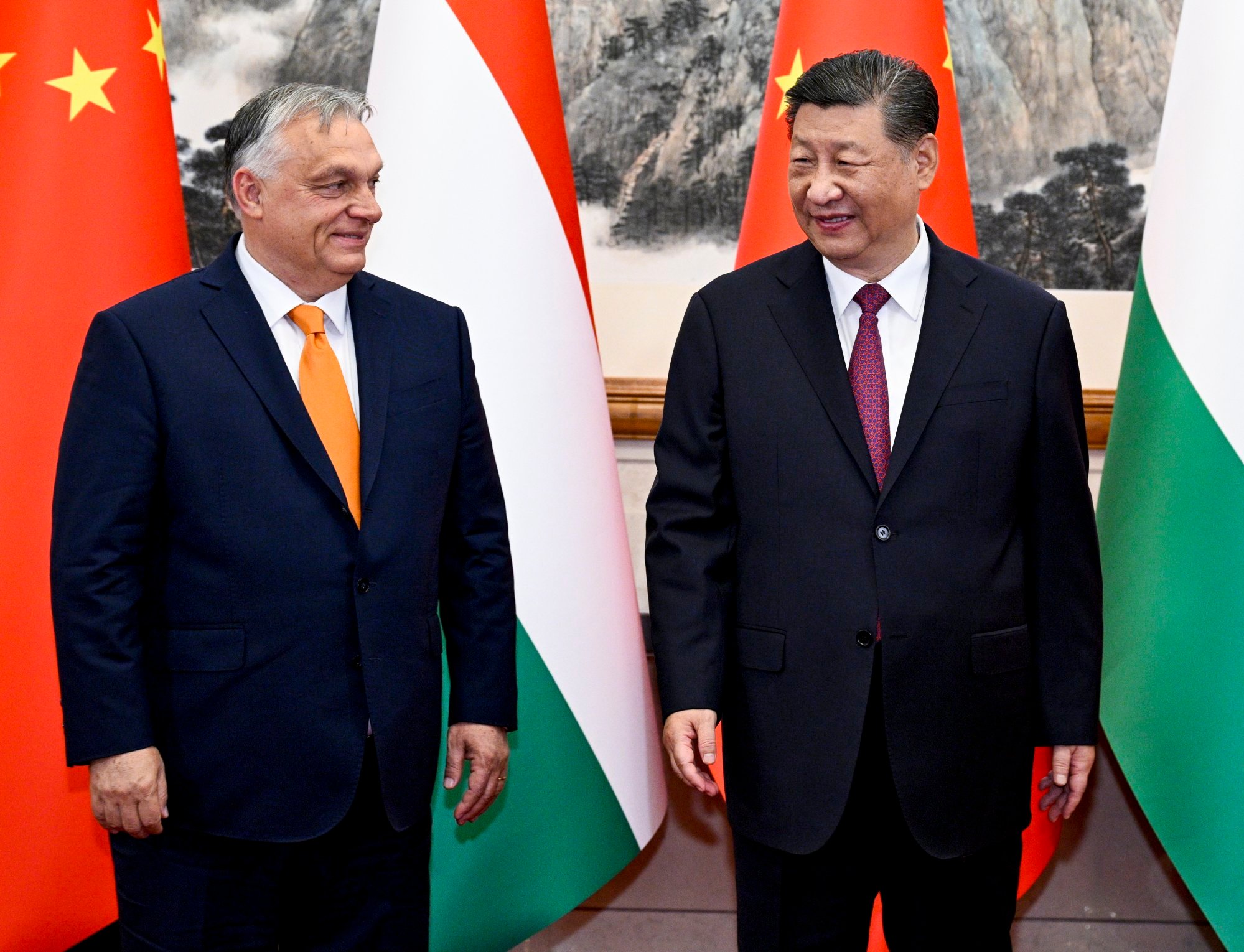The United States and European allies have reached a new level of agreement on how to counter Chinese influence and NATO will serve as a “bridge” between the Euro-Atlantic and Indo-Pacific regions, US Secretary of State Antony Blinken said Wednesday on the second day of NATO’s annual summit in Washington.
“If you look at what NATO is saying in its strategic concept, if you look at what key European countries are saying, if you look at what the European Union is saying, it’s very clear that we are more aligned than we’ve ever been on dealing with China,” Blinken said at the NATO Public Forum, the official public event at the NATO summit.
Under U.S. President Joe Biden, Washington has labeled Beijing an “unsettling challenger” to the rules-based international order. Citing national security risks, Biden has maintained and escalated some tariffs on Chinese goods first imposed by his predecessor, Donald Trump.
The Biden administration has also banned the transfer of advanced technology such as semiconductors to China, restricted foreign investment in strategic sectors, and spent billions of dollars in subsidies to promote domestic manufacturing.
Blinken said Wednesday that Europe was “doing the exact same thing.”
Earlier this month, NATO Secretary-General Jens Stoltenberg called on member states to “impose costs on China” for “fueling the largest armed conflict in Europe since World War Two” by supplying Russia with dual-use products such as microelectronics.
Stoltenberg said Wednesday it was important to “recognize the reality” of the Chinese threat as the first step to “any action,” reiterating that China is providing Russia with the tools it needs to manufacture missiles, bombs, aircraft and other systems to be used against Ukraine.

Stoltenberg noted that previously NATO had “not said a word” about China, but that China now has a “key place” in NATO’s strategic vision, with NATO labeling Beijing’s ambitions a security challenge in its 2019 strategic objectives.
A senior U.S. official said the language on China in the draft NATO statement was “very robust,” and some U.S. media reported that a joint statement to be released on Thursday at the end of the summit could describe Beijing as a “decisive supporter” of Russian military power.
Biden announced Wednesday that all NATO members have committed to expanding their defense industrial base, but he argued that Russia is stepping up its defense production with help from China, North Korea and Iran.
Since Russia’s invasion of Ukraine in 2022, both NATO and the EU have been wary of strengthening ties between Beijing and Moscow, which has significant economic and geopolitical influence over Europe.
The European Union announced last year that it would inject $45 billion in public and private funds into semiconductor research, development and manufacturing in an effort to “reduce the risks” from China.
The EU in June raised tariffs on Chinese-made electric vehicles to about 37 percent from 17 percent after a nine-month investigation into Chinese subsidies. The EU is also investigating Chinese wind turbine projects in countries including Germany, Bulgaria, France and Greece.
Blinken described that cooperation as a “great source of strength” on Wednesday, stressing the need to work in lockstep “not just with Asia but with Europe” in the face of challenges to address “some of the problems” posed by China.
“We are really seeing NATO serving as a bridge between the Indo-Pacific and the Euro-Atlantic,” he said, pointing to the Indo-Pacific leaders’ attendance at a summit from 2022 onwards.
Stoltenberg, who spoke after Blinken, agreed that “taking China seriously in terms of the challenges it poses to our national security” means deepening engagement with Indo-Pacific countries.
NATO is due to launch a program this week on AI, cybersecurity, disinformation and deterring China with Australia, New Zealand, South Korea and Japan.
“But we are also working on how we can expand defense industrial production and cooperation with these countries, for example as part of our defense industrial pledge,” Stoltenberg said, adding that NATO allies also want to expand naval exercises with Asia-Pacific partners.
Hungarian Prime Minister Viktor Orban’s recent visits to Moscow and Beijing as NATO celebrates its 75th anniversary have angered some in Europe and raised concerns about the cohesion of the alliance, which Hungary joined in 1999.
Orban is in Washington for the summit after meeting with Chinese President Xi Jinping over a peace plan for the Ukraine war. Minutes before meeting with Biden on Wednesday, the Hungarian leader posted on his official X account that NATO was acting “increasingly like a warring organisation” with its “active role” in Ukraine and was “dangerous”.

Blinken downplayed the thorniness of the situation, saying communicating with adversaries is “okay” but “what is communicated matters.”
“We hope and expect that whoever goes to Beijing will make it clear that continued funding of Russia’s defence industrial base and its continued role in posing the greatest threat to European security since the end of the Cold War is unacceptable for Europe,” he added, warning of further “action”.

